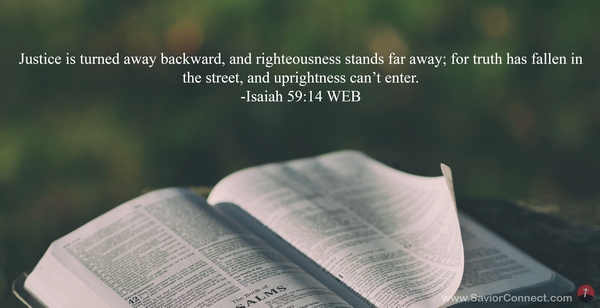For years, Supreme Court rulings like Roe v. Wade and Planned Parenthood v. Casey allowed our leaders to hide. Republicans could campaign against it, rallying their base and decrying its injustice, then once in power make the excuse that, like it or not, Roe was “the law of the land.”
Democrats alike could claim they were personally against abortion, but believed it was up to the woman. Moreover, they didn’t need to vote much on the issue — it was already decided; it was “the law of the land.”
Even Catholic bishops could shirk confrontation, pointing to those politicians’ dodges and excuses — and hiding behind the same. No drastic action needed.
Those days are over, thank God. Over the weekend, San Francisco’s Archbishop Salvatore Cordileone sent three letters: one to Speaker of the House Nancy Pelosi, one to the faithful of the archdiocese, and one to the priests. In them, he detailed the difficult decision he’d made to bar the speaker from communion in San Francisco, before repentance and absolution.
The decision, he wrote, came after many years of prayer, and multiple refusals from Pelosi to change her ways or, in the end, even to meet with him. Instead, Pelosi was growing only more vocal in her support for abortion, even citing her Catholic faith as justification and directly challenging Pope Francis on the issue. He didn’t seek to punish; only to guide back to the faith.
The partisan reaction to the archbishop’s decision was quick and vicious. The archbishop’s “chief loyalty is not to Christ,” the editorial staff of The San Francisco Chronicle squealed.
“This is not your job, dude,” Whoopi Goldberg claimed. “That is not up to you to make that decision.”
The fight had finally come to a head, and no one suspected it would be easy. Little, however, could be done to avoid it, save simple cowardice.
That’s because for the politicians, the situation had changed dramatically. Texas’s Senate Bill 8 had successfully banned killing a child with a beating heart, convincing Pelosi and other abortion-supporting politicians to speak out more publicly than they had before.
Next, the leaked Supreme Court draft frightened Democrats into believing the end of Roe and Casey was nigh. The response was vocal, loud, and immediate. Lone gone were the days of quietly hiding behind “the law of the land.”
In the church, things were changing too. The ascendance of two self-professing Catholic politicians who were pro-abortion to the most powerful roles in the world put a renewed urgency on American bishops to restate the Catholic Church’s unequivocal position that abortion is a grave evil — and that secular Catholic leaders absolutely cannot support it.
Since John F. Kennedy, the American church has walked a careful — or cowardly — line on Catholic political leaders who publicly oppose her teachings, keeping silent to maintain access to power. The vocal politics of Pelosi, President Joe Biden, then-Gov. Andrew Cuomo, candidate Terry McAuliffe, and others put the rotten fruits of that effort on full display, most heatedly on the subject of human life.
In response to the bishops’ murmurings and meetings, the Vatican released guidance on the matter. While The New York Times and other corporate, leftist outlets tried to spin it a different way, that guidance urged slow-moving, pastoral care for straying leaders — followed by public action if the church was ignored.
While for years the peace has held, with Democratic politicians and Catholic bishops both quietly taking cover behind nine black robes, the situation has now changed. This confluence set the stage for Cordileone’s public rebuke of Pelosi; as well as for future confrontations across the country.
With the expected Supreme Court ruling sending abortion policy back to the states and their elected representatives, politicians will be forced to take a stand. Morally ambiguous posturing won’t satisfy pro-abortion voters, or the faithful.
Change won’t come too quickly, or everywhere at once. It’s unlikely, for example, that we’ll see action from the archbishop of Washington, D.C. — a man selected for the capital in part because of his go-along-get-along permissiveness toward our secular leaders. Already since her archbishop’s ruling, Pelosi has received communion in D.C. Cardinal Wilton Gregory’s diocese, choosing a Georgetown church that’s long been a favorite of pro-abortion politicians.
Voting for a law expressly forbidden by the pope and his past two successors, however, is a scandal, and less politically charged clergy around the country will feel the pressure to react — especially as Democrats line up to publicly vote for nationally legal abortion.
The Catechism clearly lays out the church’s position. The United States Conference of Catholic Bishops, hand in hand with the Vatican, laid out how it should properly be publicly handled. The archbishop of San Francisco laid out the tact, grace, prayer, and patience needed — as well as the supporting documents necessary to communicate the decision to the errant, the clergy, and the faithful. Next up are his brother bishops across the country.
For decades, the Supreme Court’s decision to hijack the abortion question blunted the moral impetus for secular and religious leaders alike. It allowed for a dishonest debate, and for the left to claim our elected representatives alone have jurisdiction over matters of life and death, while rarely exercising this jurisdiction.
For decades, from both the church pulpit and the bully pulpit, it allowed for cowardice. Soon that may be ending. It might not make for a less contentious time in American life, but it will sure make for a more honest one.
